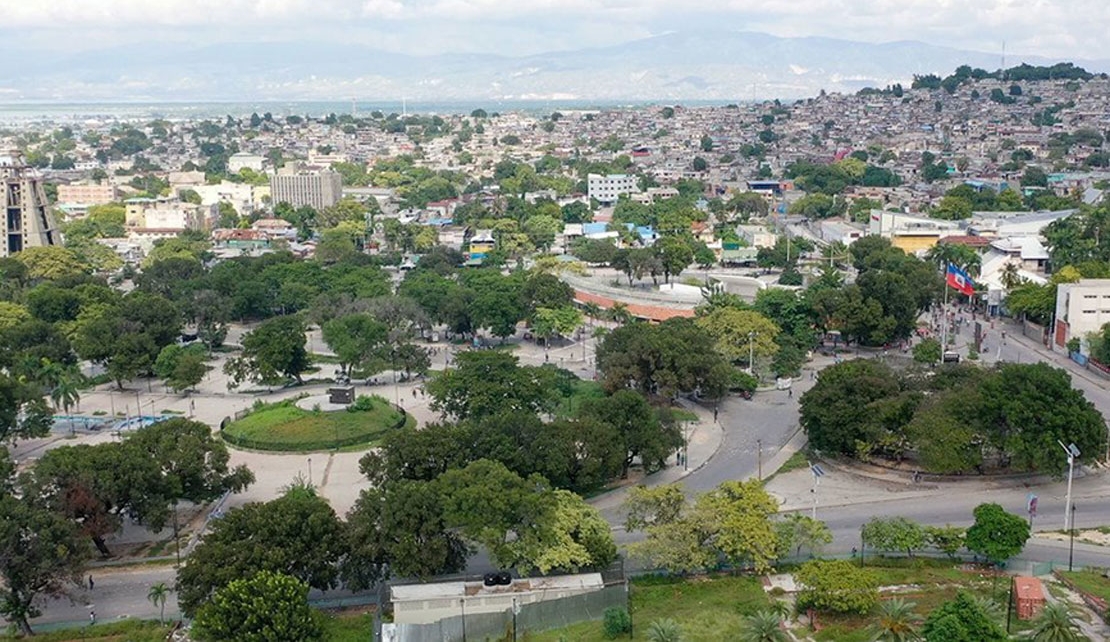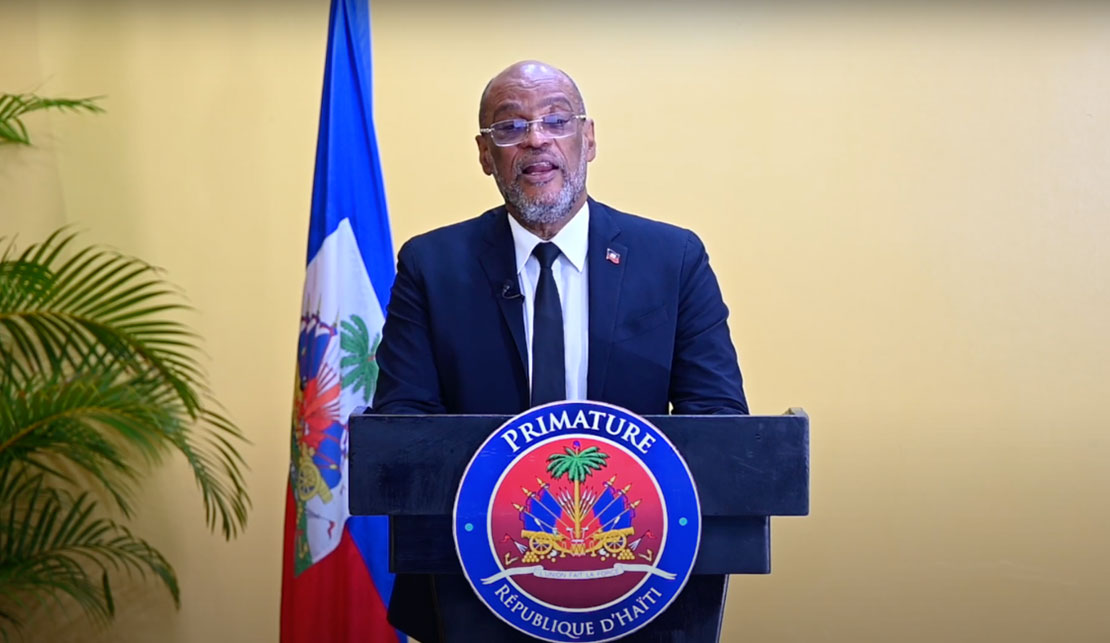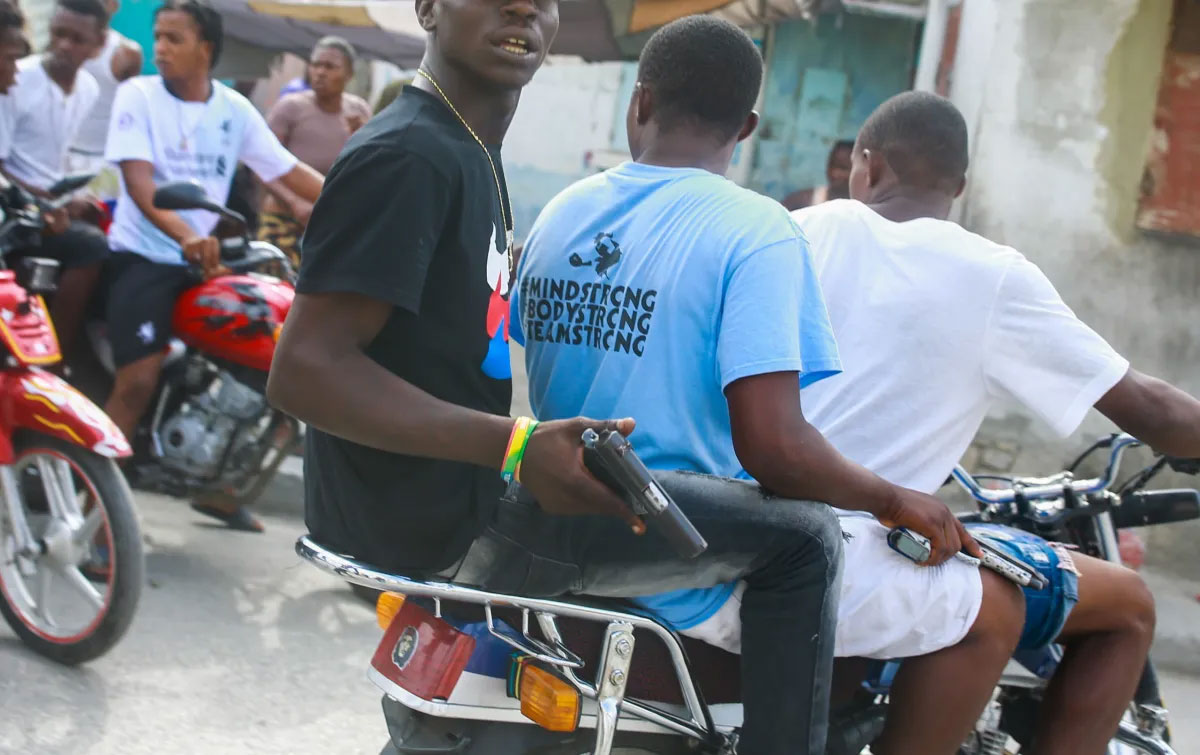HAITI | PM Henry appeals for help, UN, US, reviewing request for “specialized armed force”

Following Haitian Prime Minister Ariel Henry’s appeal for help from the international community to curb the country's security and health needs, United Nations Secretary General António Guterres called on Sunday for the Security Council to consider deploying armed forces to help the country address immense humanitarian concerns.
The move by the UN chief comes a week after Prime Minister Henry sent out a request to the international community, for a “specialized armed force” to intervene in a country which has effectively ground to a halt.

Last month, gangs blockaded the Verreux fuel terminal, Haiti’s main fuel port, leading to major gas and diesel shortages, and causing businesses and hospitals to shut down.
Prime Minister Henry said that the Socio-political unrest enveloping Haiti was engineered by crooked politicians and businessmen, and has urged residents to wake up.
He said the country's current lockdown that’s drawn thousands to the streets to demand his resignation is the work of politicians and corrupt business owners. As a result, he won’t give in to demands to reduce the rise in fuel prices he announced last month.
People in #Haiti are suffering. @antonioguterres sent the Security Council a proposal for bilateral security support yesterday. Gangs have paralyzed the country, triggering fuel, water shortages. Resurgent cholera makes it even more critical to come to Haiti’s aid urgently.
— Rosemary A. DiCarlo (@DicarloRosemary) October 10, 2022
“Some people have problems with the decisions of the government working to put more money in the state coffers,” Henry said. “Because we have asked everyone without straight passes to pay the customs and the DGI (taxes), because we want to change the management of the finances of the State for the new Haiti that we want.”
Consequently, the government intends to maintain its decision to increase the prices of fuel even though residents have been protesting for more than 15 days.
He also explained the abolition of subsidies for fuel, saying the 50 to 60 million gourdes, or USD $400 to USD $ 500 thousand, will be used for the execution of social programs.
The Haitian Prime Minister said “Without the elimination of these subsidies, the government will not be able to support parents or public servants in the context of returning to school,” Henry said.
Henry also said that he is not prepared to go back on the measures taken to strengthen customs structures in order to increase tax revenue.

“The blocking of the roads, the closing of schools and hospitals, the lack of drinking water and the increase in the cost of living are not in your interests,” Henry said.
Furthermore, with the resurgence of cholera, Henry said, an unprecedented humanitarian crisis is threatening the country and could cost the lives of many residents.
He said it was against that background that he asked for help from the international community adding that the country has great needs, particularly in terms of security and medicines.
According to the United Nations, potable water supplies have been impacted at a time when Haitians are facing a cholera outbreak, following three years without any cases. The outbreak prompted Martin Griffiths, the UN’s humanitarian relief chief, to call on Saturday for emergency life-saving assistance funding, and warn that, if the spread of the disease is left unchecked, it could lead to “cataclysmic levels of despair for the people of Haiti.”
Cholera cases continue to grow amid the worsening insecurity. On Monday, the UN Spokesperson Stéphane Dujarric, said that as of Sunday, there were 32 confirmed cases, 224 suspected, and 16 confirmed deaths.
“Despite access and logistical challenges, we and our humanitarian partners are supporting the Ministry of Health on the cholera response”, said the UN Spokesperson. “More than 43 health facilities around Port-au-Prince and the Centre region have been identified and will be used to treat cholera patients.”
Twelve health facilities are currently receiving patients for treatment, while water points have been installed and water and sanitation teams have begun to do training and chlorination interventions.
Risk Communication and Community Engagement efforts are ongoing, said Mr. Dujarric, and currently target one million people a day with text messages in creole.
-30-
